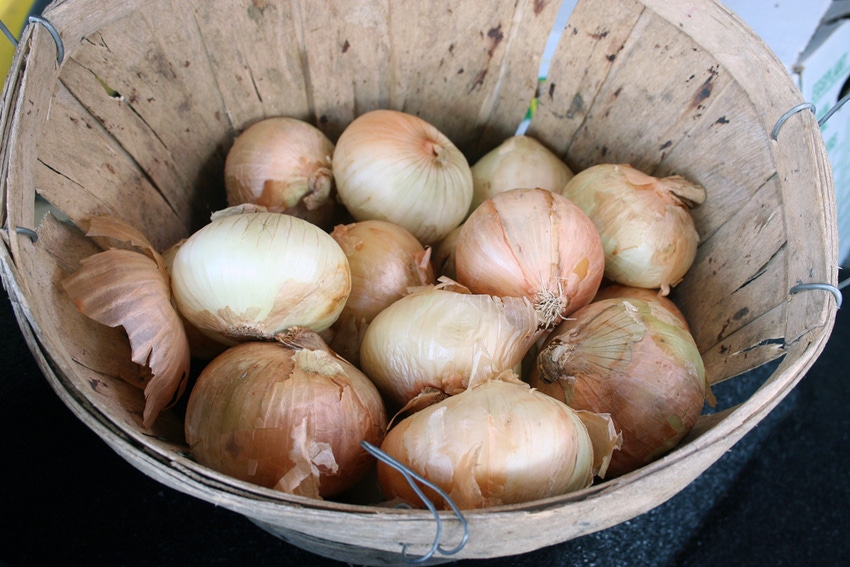January 5, 2016

Farmer Vincent Kosuga was the only man to ever corner the onion market, or to so successfully get away with cornering any agricultural commodities market.
Kosuga was born Jan. 17, 1915. He was raised in Pine Island, N. Y., and owned a large farm there where he grew celery, lettuce and, most infamously, onions. And as we approach what would have been his 101st birthday, I think he needs to be remembered.
Other than a farmer, Kosuga was also a shrewd businessman who bet on the futures market in the 1930s on soybean and wheat and other commodities, which still is a good tactic farmers can use to lock in a price and minimize risk in their business. But, the futures market can also leave a farmer, or anyone else who bets on it, holding the bag if prices sink. And in the 1930s, Kosuga got hit hard by a bad wheat market.
Undeterred, Kosuga smelled a bigger opportunity with a commodity he knew best, onions, and capitalized on it in the mid-1950s, and his actions resulted in legislation which banned onions from futures trading, the only commodity with such a ban in the United States.
Kosuga began to store his onions, all of them, on his farm in 1955. And not just storing his onions, he began buying and storing onions in secret across the country with a few partners. He also decided to use his trading addiction to buy futures contracts on the onions being planted, and by fall 1955, he had trapped the onion market, essentially owning or controlling the loans of all onions in the United States.
Want access to the very latest in agriculture news each day? Subscribe to Southeast Farm Press Daily. It’s free!
He kept his onions off the market and created a false shortage. He and his partners told distributors and buyers to buy their onions at higher prices or they will dump the onions on the market and trash onion prices. The buyers bought Kosuga’s onions, a reported 9 million pounds of them. Kosuga and gang took what they bought at low prices and sold at a higher price.
But, he didn’t stop there and what he did next stabbed his fellow onion farmers across the country in the back. He controlled onions, so he made the price go up. He also could make prices go down. He made a bet on the market that onion prices would go down, and shorted the onion market.
Chicago River flows with onions
He took what onions he had left in storage and trucked them to the Chicago Board of Trade, literally flooded the market and streets with onions. Onions, worthless at that point, were dumped into the Chicago River. This action devastated fellow onion farmers left with a worthless and perishable product. Bankruptcies and suicides were reported. Kosuga made millions of dollars.
He felt some backlash for his scheme, but not much. He died not long after his 86th birthday in 2001 on his farm, reportedly still worth a lot money and having become a respected philanthropist.
(If you want to know more about the details of Kosuga and his onion scheme, check out this Planet Money podcast episode. It’s an exceptional episode from an exceptional group of reporters.)
So, was Kosuga a crook? A cold-blooded, capitalist pig? Did he commit a crime? I don’t know, but I am surprised there are no reports of people, specifically farmers, taking him down a long dirt road 'to talk’ on him pretty hard.
The outcry by fellow onion farmers at the time resulted in the Onion Futures Act, which became law in 1958, banning futures trading in onions in the United States, the only agricultural product you can’t trade futures in still today.
We are in the age of mega-mergers when too few (too few mega companies) control too much with the argument such mergers help these companies better serve their “clients,” which is just coded, smoky verbiage for them to pave the way for their company investors to better corner a market.
I can’t help but have a little guilty admiration for Kosuga and a time gone by when a single man with determination, no matter how unethical, can single-handedly control a market. Farmers are price takers, cursed to be at the mercy of weather and fickle (and now much-more-global) commodity markets. Kosuga and gang took measures into their own hands and became farmers who gave prices and called the shots.
You May Also Like




